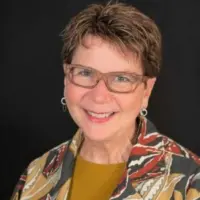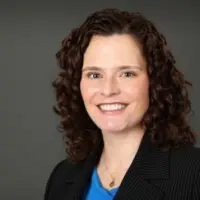My daughter was a resident here. They hire fresh out of high school teenagers that have no clue how to handle, talk, or care for mis guided youth as they are still somewhat mis guided themselves. My daughter was not supposed to be using any electronics nor on any social medi ...
About Bar None Haven
Volunteers of America Minnesota and Wisconsin is an innovative organization offering multiple programs that assist individuals across the human spectrum. The organization has over 500 staff members and offers more than 70 programs and services.
One of the organization’s CARF accredited facilities is the Bar None Haven in Oak Grove, Minnesota. The Bar None Haven treats individuals aged 11-17 of both genders. The program is funded through private medical insurance or state and county funds.
Clients must have a referral to be admitted to the program and must meet the criteria for severe emotional disturbance. Clients are treated for mental health and co-occurring substance use disorders. This is a locked and secure facility that offers a supportive environment for young clients with serious safety concerns.
Beautiful Campus Environment
The treatment facility is located on a 30 acre wooded campus with a lake and natural environment. The area provides a peaceful rural experience. Youth clients stay in small cottages and are educated on site through an accredited school.
Although the facility is within easy reach of Anoka and its amenities, the proximity to parks and the somewhat secluded setting provide a serene and calming environment conducive to recovery. There are indoor and outdoor activity areas, including sports fields and a gym, and security features provide structure and safety.
Helping Individuals Break the Cycle of Destruction
Most individuals stay in the program between 5-7 months, depending on their motivation, diagnosis, and history. One former client remarked that the staff “…never gave up…you guys helped me find a reason in my life.”
Clients receive multiple therapy modalities, psychiatry and medication management. Families are offered support, and caregivers are given a chance to rest and heal. A social worker expressed, “Thank you all at Bar None, from the bottom of our hearts. We have tried many different placements for this youth, and they did not work out…we knew we could not lose hope.”
Facility Overview
Latest Reviews
Rehab Score
Other Forms of Payment
Private insurance refers to any kind of healthcare coverage that isn't from the state or federal government. This includes individual and family plans offered by an employer or purchased from the Insurance Marketplace. Every plan will have different requirements and out of pocket costs so be sure to get the full details before you start treatment.
Self-pay involves paying for treatment out of your own pocket. You can use savings or credit, get a personal loan, or receive help from family and friends to fund your treatment. If you don't have insurance or your insurance plan doesn't cover a specific program, self-pay can help ensure you still get the care you need.
Financial aid can take many forms. Centers may have grants or scholarships available to clients who meet eligibility requirements. Programs that receive SAMHSA grants may have financial aid available for those who need treatment as well. Grants and scholarships can help you pai for treatment without having to repay.
Addiction Treatments
Levels of Care
Residential treatment programs are those that offer housing and meals in addition to substance abuse treatment. Rehab facilities that offer residential treatment allow patients to focus solely on recovery, in an environment totally separate from their lives. Some rehab centers specialize in short-term residential treatment (a few days to a week or two), while others solely provide treatment on a long-term basis (several weeks to months). Some offer both, and tailor treatment to the patient's individual requirements.
Treatments
Mental health rehabs focus on helping individuals recover from mental illnesses like bipolar disorder, clinical depression, anxiety disorders, schizophrenia, and more. Mental health professionals at these facilities are trained to understand and treat mental health issues, both in individual and group settings.
Clinical Services
Cognitive Behavioral Therapy (CBT) is a therapy modality that focuses on the relationship between one's thoughts, feelings, and behaviors. It is used to establish and allow for healthy responses to thoughts and feelings (instead of unhealthy responses, like using drugs or alcohol). CBT has been proven effective for recovering addicts of all kinds, and is used to strengthen a patient's own self-awareness and ability to self-regulate. CBT allows individuals to monitor their own emotional state, become more adept at communicating with others, and manage stress without needing to engage in substance abuse.
Whether a marriage or other committed relationship, an intimate partnership is one of the most important aspects of a person's life. Drug and alcohol addiction affects both members of a couple in deep and meaningful ways, as does rehab and recovery. Couples therapy and other couples-focused treatment programs are significant parts of exploring triggers of addiction, as well as learning how to build healthy patterns to support ongoing sobriety.
Experiential therapy is a form of therapy in which clients are encouraged to surface and work through subconscious issues by engaging in real-time experiences. Experiential therapy departs from traditional talk therapy by involving the body, and having clients engage in activities, movements, and physical and emotional expression. This can involve role-play or using props (which can include other people). Experiential therapy can help people process trauma, memories, and emotion quickly, deeply, and in a lasting fashion, leading to substantial and impactful healing.
Research clearly demonstrates that recovery is far more successful and sustainable when loved ones like family members participate in rehab and substance abuse treatment. Genetic factors may be at play when it comes to drug and alcohol addiction, as well as mental health issues. Family dynamics often play a critical role in addiction triggers, and if properly educated, family members can be a strong source of support when it comes to rehabilitation.
Group therapy is any therapeutic work that happens in a group (not one-on-one). There are a number of different group therapy modalities, including support groups, experiential therapy, psycho-education, and more. Group therapy involves treatment as well as processing interaction between group members.
In individual therapy, a patient meets one-on-one with a trained psychologist or counselor. Therapy is a pivotal part of effective substance abuse treatment, as it often covers root causes of addiction, including challenges faced by the patient in their social, family, and work/school life.
Trauma therapy addresses traumatic incidents from a client's past that are likely affecting their present-day experience. Trauma is often one of the primary triggers and potential causes of addiction, and can stem from child sexual abuse, domestic violence, having a parent with a mental illness, losing one or both parents at a young age, teenage or adult sexual assault, or any number of other factors. The purpose of trauma therapy is to allow a patient to process trauma and move through and past it, with the help of trained and compassionate mental health professionals.
Staff

Julie Manworren
President & CEO

Julia Donaldson
Senior VP of Program Services & Mission Advancement

Fei Wong McKhann
Senior VP of Program Services & Information Systems

Roma Anderson Milton
Interim Senior VP of Human Resources

Deb Steinke
CFO

Melissa Bayne
BOD
Contact Information
22426 St. Francis Blvd.
Oak Grove, MN 55303